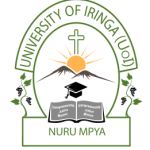DIRECTORATE FOR ENTREPRENUERSHIP AND INNOVATION (DEI)
A: Background & Introduction
Directorate for Entrepreneurship and Innovation (DEI) was established in 2008 at the University of Iringa (formerly Tumaini University-Iringa University College). DEI was founded with a clear mission: to promote and support entrepreneurship, innovation, and economic development within Tanzania’s Southern Highlands. DEI acts as a bridge between academia and industry, providing resources, knowledge, and mentorship to help young entrepreneurs and innovators turn their ideas into viable businesses.
In 2016, the Kiota Innovation Hub was established as an extension of DEI, offering a physical space and a collaborative environment for entrepreneurs to brainstorm, develop, and launch their ideas. Kiota Hub is now the beating heart of entrepreneurship at the University of Iringa, serving as a vibrant ecosystem where youth, startups, and the community at large come together to create solutions that drive socio-economic development.
B: Rationale
Tanzania faces a major challenge with youth employability, as graduates often lack the skills required for the 21st-century job market or the entrepreneurial acumen to start and sustain businesses. Many young people are drawn into entrepreneurship due to the scarcity of formal employment opportunities, yet they are ill-equipped to manage successful ventures due to inadequate skills, knowledge, and business mindsets.
DEI was established to address this critical gap by equipping students and young professionals with the tools, resources, and mindset needed to thrive in the world of business and innovation. This is achieved through entrepreneurship training, business development services, and the nurturing of an entrepreneurial culture across the region.
B: Rationale
Tanzania faces a major challenge with youth employability, as graduates often lack the skills required for the 21st-century job market or the entrepreneurial acumen to start and sustain businesses. Many young people are drawn into entrepreneurship due to the scarcity of formal employment opportunities, yet they are ill-equipped to manage successful ventures due to inadequate skills, knowledge, and business mindsets.
DEI was established to address this critical gap by equipping students and young professionals with the tools, resources, and mindset needed to thrive in the world of business and innovation. This is achieved through entrepreneurship training, business development services, and the nurturing of an entrepreneurial culture across the region.
C: Vision
D: Mission
To serve as a catalyst for business development, job creation, and socio-economic progress by offering entrepreneurship training, innovation support, research, and consultancy, thereby fostering productivity and income generation across Tanzania.
E: Institutional Objectives
F: Services
DEI and Kiota Hub offer a broad array of services that aim to empower entrepreneurs and business owners:
• Innovation Space: A creative environment where entrepreneurs can meet, brainstorm, and work together on innovative solutions.
• Nurturing Ideas: Through mentoring and training, DEI helps innovators transform their ideas into viable, market-ready products and services.
• Linkages with Industry and Market: The hub provides valuable connections between startups and industry players, helping young businesses gain access to markets and investment opportunities.
Major Activities and Approach: DEI uses a learning-by-doing approach, where participants gain hands-on experience in starting and managing businesses. Their model incorporates coaching, mentorship, and human-centered design principles to solve real-world challenges. DEI also engages in public-private sector dialogue, research, consultancy, outreach, and advocacy to ensure continuous improvement in entrepreneurship practices across Tanzania.
G: Bachelor of Applied Marketing and Entrepreneurship (BAME)
To address the skills gap among youth, DEI launched the Bachelor of Applied Marketing and Entrepreneurship (BAME) program in 2015. Based on the Team Academy (LPI) Model, students are immersed in practical, real-world business environments from their first year. Students are tasked with creating and managing businesses, allowing them to learn through experience while developing critical entrepreneurial and intrapreneurial skills. The goal is to empower graduates to not only start their own businesses but to bring an entrepreneurial mindset to any career path they choose.
H: Exchange Programs for Students and Staff
DEI values the importance of global exposure and collaboration for both students and staff. Through partnerships with international universities and innovation hubs, DEI facilitates exchange programs that allow students and staff to engage with global entrepreneurial ecosystems. These programs provide opportunities for participants to gain insights into international markets, expand their networks, and exchange knowledge on best practices in entrepreneurship and innovation.
DEI has collaborated with institutions such as VU University Amsterdam and various African and European innovation hubs, giving participants a chance to experience diverse business environments, participate in international conferences, and work on cross-border projects.
I: Statistics
Kiota Hub has been a driving force in entrepreneurship and innovation in Tanzania. Its impact is quantifiable and continues to grow:
• 390 startups have been established through its programs, with 100 startups currently receiving mentorship.
• Over 10,000 youth have been reached through more than 150 events and workshops.
• Notable programs include Master Classes, Life After University sessions, hackathons, and the bi-annual Start Your Start-Up (SYS) program, which has helped build a sustainable entrepreneurship ecosystem for the youth.
• Through various funded projects, the hub has been pivotal in the creation of 300 businesses in sectors ranging from agribusiness to ICT.
J: Events
DEI and Kiota Hub are renowned for organizing impactful events that bring together entrepreneurs, industry experts, investors, and students to collaborate and innovate. These events include:
1. Iringa Innovation Week (2021, 2023, 2024): These annual events have become key platforms for showcasing local innovations and providing young entrepreneurs with access to mentorship and investment opportunities.
2. University of Iringa Innovation Week: This event focuses on tapping into the creative and innovative potential of UoI students, allowing them to present their ideas to potential investors and industry leaders.
3. Hackathons and Competitions: DEI hosts hackathons that encourage participants to solve real-world problems through technology and innovation. These competitions have led to the creation of numerous startups.
K: Programs and Funds
DEI and Kiota Hub have been involved in numerous programs that have brought significant socio-economic benefits to the region:
1. Promoting Youth Start-Ups (2019-2020): Funded by COSTECH and HDIF, this program facilitated the creation of 10 startups, trained 60 youth, and developed 40 business plans. It also provided ongoing mentorship and support for these young entrepreneurs.
2. ICT for Agriculture (2021-2022): A USAID-funded program that engaged 200 youth and resulted in the creation of 60 agribusiness startups. This initiative focused on leveraging technology to enhance the agricultural value chain in Tanzania.
3. Generation Food Accelerator (2022-2024): Funded by the EU, this program aimed to foster innovation in the horticulture sector. It trained 300 youth, provided mentorship to 120, and funded 60 youth-led businesses.
4. Innovation Promotion for Hortipreneurs (2023-2026): Supported by USAID under the Feed the Future initiative, this project aims to train 600 youth and create 300 businesses in horticulture. To date, 200 youth have received training, and 100 businesses are under active mentorship.
5. Business Planning Competition (COSTECH-funded): Reaching 180 youth, this competition facilitated the formation of 10 new businesses through the development of innovative business plans.
M: News and Updates
Keep up with the latest updates from DEI and Kiota Hub:
• Launch of new business mentorship programs for agribusiness startups.
N: Gallery

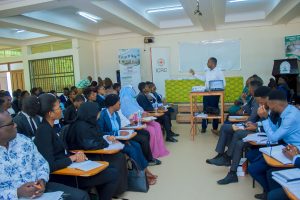

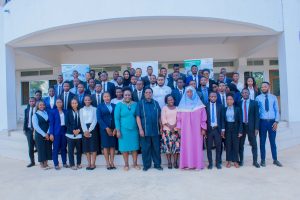
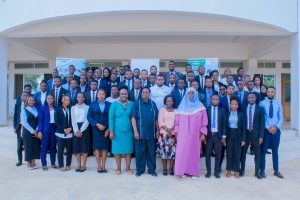
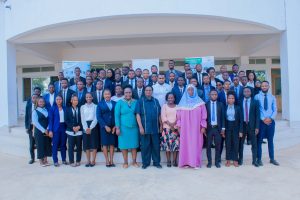
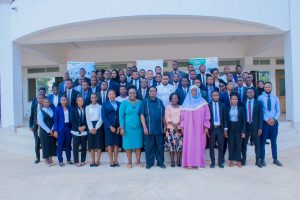
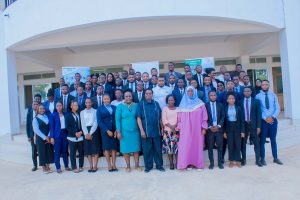
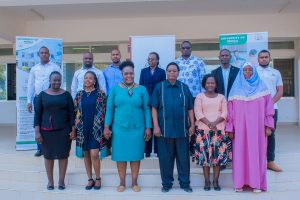
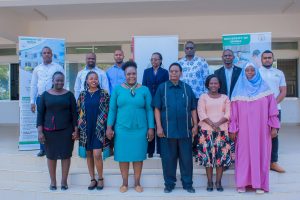
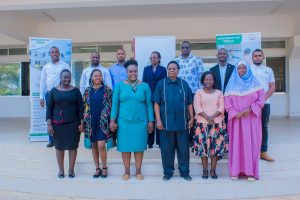
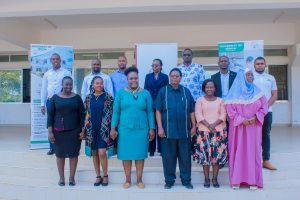
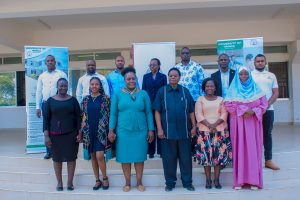
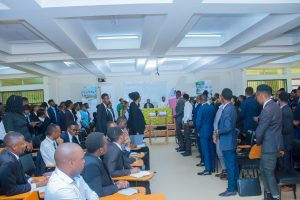

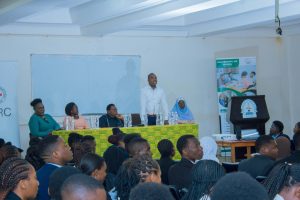

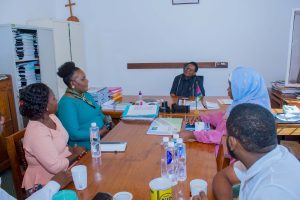


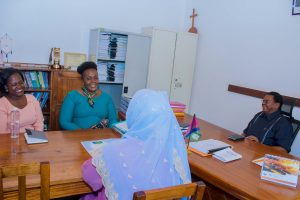

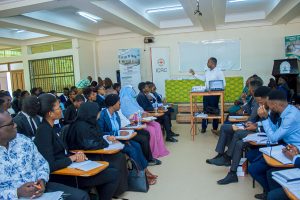

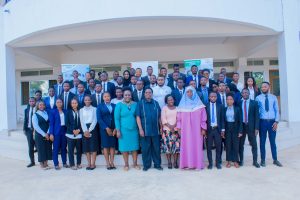
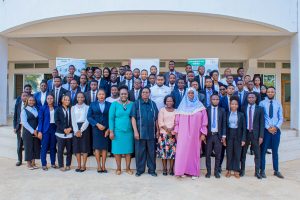
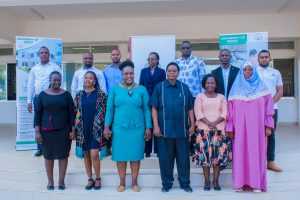
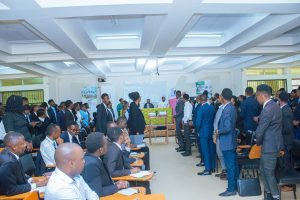



O: Awards
DEI has been recognized for its excellence:
• Top Higher Learning Institution for Community Empowerment (Tanzania): Awarded by the National Economic Empowerment Council.
• Top 100 Universities Globally in Entrepreneurial Spirit: Recognized by the World Universities with Real Impact (WURI)
P: Our Partners
DEI has built strong partnerships with several national and international organizations that support entrepreneurship development:
• USAID: Funded several projects, including the ICT for Agriculture program and Innovation Promotion for Hortipreneurs.
• COSTECH (Commission for Science and Technology): Partnered on various entrepreneurship initiatives, including the Promoting Youth Start-Ups program.
• NUFFIC/EU: Provided funding for the Harmonization of Business Education project.
• French Embassy in Dar: Supported the Innoversity Project, which resulted in the creation of new businesses in the region.
• Government of Finland: Funded the TANZICT Project, which focused on entrepreneurship training and business development.
• HDIF (Human Development Innovation Fund): Funded by DFID to support youth entrepreneurship initiatives.
• Ministry of Trade and Industry & SIDO: Supported linkages between startups and industrial sectors to boost market access and business growth.
Q: Success Stories
DEI and Kiota Hub have helped nurture several successful startups and businesses that are now thriving across Tanzania. Here are a few notable success stories:
1. TechFarm Agribusiness: A startup founded by UoI students that focuses on innovative agricultural practices. With mentorship from DEI, TechFarm has grown to operate across multiple regions, delivering significant impact in food production and sustainability.
2. Green Innovators: Initially a small horticulture project, Green Innovators grew into a large enterprise, thanks to the support and funding provided through the Generation Food Accelerator program. The business now supplies fresh produce to markets across Tanzania.
3. EcoTech Solutions: This digital startup began as an idea during one of DEI’s hackathons. Today, it is a leading provider of IT solutions for the agricultural sector, employing over 50 individuals and providing services that improve farming efficiency.
